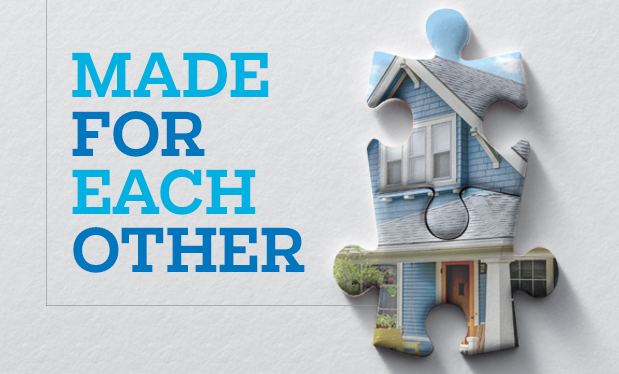In any business, sales are one of the biggest challenges, and also the key to success. And residential roofing is no different—with manufacturers creating more and more similar products, a tightening labor market and intense competition, how do successful companies continuously make new sales and, importantly, keep customers coming back?
Professional Roofing spoke with three leading residential roofing contractors from a cross-section of the U.S. to find out their tips and secrets for thriving in an increasingly competitive environment. Following is an excerpt of the interviews with Bryan Karel, vice president of operations for Garlock-French Corp., Minneapolis; Bobby Laughlin, a senior estimator for Academy Roofing Inc., Aurora, Colo.; and Keith Swope, president of Tampa Roofing Co., Tampa, Fla.
How has selling roof systems to homeowners changed in the age of social media and portable technology?
Swope: The only thing we have done differently is put a lot of information about roofing on our website. I want our customers to be as knowledgeable as they can be, and I direct them to our website as a resource of roofing information.
Karel: We have noticed homeowners are able to do a lot more research about products, installation methods, contractors and even potential solutions to their problems. This can be a difficult situation because much of the information out there can be incorrect. We find ourselves spending time changing customers' misperceptions. In addition, because of their online research, some customers believe they know more about how to install roofing products than we do.
On the flip side, as a contractor, we are able to be more informed before we go out to look at a home. We can have roof reports with measurements and photos before we even step foot on the site. This has helped increase the speed in which we can produce bids and allows us to spend more time with a customer rather than measuring all aspects of the roof.
Laughlin: The rise of social media and portable technology has allowed consumers to educate themselves more quickly than ever before. Homeowners are more knowledgeable about roof systems and about the roofing contractors available to perform their work. Selling roof systems to homeowners actually begins before a homeowner even picks up the phone to call your company. This is why managing online reviews, company listings and website updates is critical to the selling process. There are many new technologies available contractors can use during the in-home selling process, such as virtual home remodeling apps. Contractors can simply upload a photo of a home and customize the roof with different types and colors of roofing materials. This helps homeowners visualize what their roofs will look like, which is more helpful than showing them sample boards and product catalogs.
What kinds of marketing support from manufacturers do you find most helpful?
Karel: What we have found to be most helpful from the manufacturers are complete roof systems, including extended warranties. This allows us to talk about the overall system and not worry about explaining different products.
Laughlin: It is important to take a proactive approach when requesting marketing support from manufacturers. Our manufacturers are great about finding ways to meet our needs as long as we ask. We ensure our manufacturers support us through "lunch and learns," product demonstrations and the creation of marketing materials when needed. Often, manufacturers are willing to co-op print advertising opportunities in larger scale publications. If you are not sure about the marketing support a manufacturer can offer, ask!
Swope: Our philosophy is people are buying from us and not manufacturers. We develop our own marketing materials. As the oldest roofing contracting company in Florida, we lean on our reputation. We are not competitive on our numbers. We build a Cadillac product, and I tell customers straight out—we will not be the lowest price. If that's what they are looking for, they need to look elsewhere.
How do you try to differentiate yourself from your competitors?
Karel: We differentiate ourselves by talking with customers and listening to them, understanding their problems and providing solutions. If we win a sale, we complete the job with high-quality work and stand behind it if there are any problems.
Swope: Our salespeople. We are the best, and we know it. And we are not embarrassed by our price tag.
Laughlin: What differentiates our company is our in-house crews. Most of our competitors rely solely on subcontractors. Our installers are paid hourly and trained by us. Many of our installers are experienced, long-term employees who are expert craftsmen. Because of the labor shortage, our company has had to resort to using a select few subcontractors, but we make sure all our subcontractors are thoroughly vetted through our prequalification and onboarding process. They are required to provide acceptable insurance, follow recognized industry safety guidelines and provide a detailed company history to us before being assigned to any of our projects. Our customers are given the opportunity to choose whether they want to use Academy installers or subcontractors for their roofing projects.
NRCA now is offering a certification (NRCA ProCertification™) for asphalt shingle roof system installers. Do you intend to enroll your workers? Do you believe NRCA ProCertification will make a difference in your market?
Laughlin: We haven't become involved yet because we established our own career path program for our employees that is similar in scope to NRCA ProCertification. However, we are closely watching how the NRCA ProCertification program develops to determine whether it might be a better fit for our company than the career path we created.
Swope: We train our own people. I spend an hour every morning training people. I go to every job site. My son goes to job sites every day. But I believe what NRCA is doing is a good thing for those who need it.
Karel: We plan on having some of our employees go through the NRCA ProCertification process. We believe it will be good for the industry. It is going to be difficult for independent contractors because so many of them travel around, and it will be interesting to see how certification will affect the industry.
What do you do better than your competition?
Laughlin: Aside from the fact that our company has in-house crews, our reputation sets us apart from the competition. Our company has been in business since 1980. A majority of our business comes to us through referrals and repeat customers. Our company has been around so long we do not need to canvas or cold call prospective customers. When the hail comes, people all along the Colorado front range know to call our company.
Swope: Four things: Our training; our longevity; the fact that we don't cut corners; and we use elite products.
Karel: The high quality of work we perform
Are there any tips you can share regarding how you get a homeowner to say "yes" to your company?
Karel: We have created a good reputation in our market for solving problems. We use past experiences and show other projects that help close the sale.
Laughlin: Homeowners are more likely to say "yes" when you can demonstrate your knowledge and expertise. However, we always feel it is most important to listen and understand first what a customer needs. Then, we can correlate his or her needs with the experience our company brings. Being honest and upfront is also imperative. Sometimes, we have to give our residential customers unpleasant news, such as a roof cannot be repaired or insurance isn't going to cover the cost of the new roof or the repairs will be costly. This news must be delivered in a way that recognizes the expense as well as the stress of having a roof replaced. It also helps to explain to a homeowner why our bid may be higher than others. Lastly, we need to explain the value of doing business with our company where dedication to the safety of our employees, experienced craftsman and longevity of our company sets us apart.
Swope: Allow them to. They want to. The best roofing salesman I know is my father. He will talk bark off a tree. I have been on appointments with him where we have never discussed the roof. He talks to customers about the neighbors and common friends or gardening and the next thing you know, he has scheduled the job and never discussed a price. People buy from people they can relate to and trust. If they don't buy from you, they don't like you.
What is your biggest challenge in closing a sale?
Swope: You need to make sure the decision-maker is there, which usually is the wife.
Karel: If we have listened to the customer and provided a solution that will solve the problem, the biggest obstacle to overcome will be the price of that solution. Can the customer afford the solution?
Laughlin: Hail is a fact of life in Colorado. Many residential roof system replacements are hail-related. Therefore, we are constantly working with insurance companies to replace roofs. It is difficult in catastrophic hail situations to explain to inexperienced adjustors roofs must be put back together in a different manner than the adjustor has prescribed. We have established good relationships with many insurance companies in our market area that know we are a company they can trust and that will not advise homeowners to add things they don't necessarily need. If a home does not need a repair from a recent hailstorm, we tell our homeowners this. Sometimes, other contractors have already told the same customer a new roof is needed, which can be hard for customers to swallow. It's a challenge in these situations, but ultimately, I never want to compromise our integrity.
Any final tips?
Karel: Over the years, our way of doing business has been to treat customers as we would want to be treated. We do not use high pressure to close; we want to listen to problems and solve them. This has allowed us to build trust and relationships with customers that in some cases have lasted decades.
Laughlin: Selling residential roof systems can be extremely gratifying. You establish relationships with people, and it is fun to get to work with people over the course of many years.



